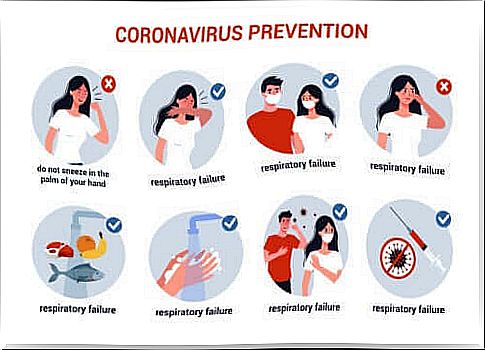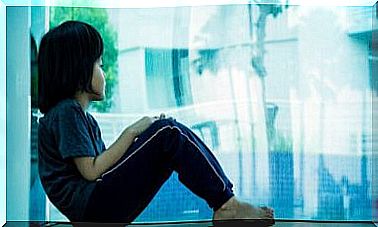How To Stop The Coronavirus: Why It Is Important To Close Schools

We all now know what coronavirus is. The media talk about it all the time. Sometimes, however, all of this information can cause fear and confusion. Never before has a virus had such a social and economic impact. As stated by the WHO (World Health Organization), we are facing a pandemic caused by the new coronavirus SARS-CoV-2.
It is not the first time that there have been viral outbreaks around the world (just to mention a few, we can mention Ebola or avian flu). But the number of deaths from coronavirus (COVID-19) continues to increase, especially among the elderly and those with previous diseases. It seems that the cases do not stop increasing and the fear grows exponentially.
How long will it last?
It is not yet known for sure how long the virus will remain in circulation. Furthermore, it is not even known if it is a temporary virus or if it will return with the first colds. There are many people who follow the data relating to the COVID-19 infection in real time.
Some experts think that the sun and heat reduce the aggressiveness of the virus. The fact that there will not be so many people gathered in enclosed spaces and that the virus at high temperatures seems to have difficulty reproducing gives us hope. However, WHO said the data is still too scarce to say for sure.

There are people who will become infected, some will have symptoms and some will be asymptomatic. The good news is that once infected and cured, you should be immune to re-exposure to the virus or at least exposed to severe symptoms. But this has yet to be confirmed.
Stopping the coronavirus: restrictive measures of social distancing
The health authorities and the government recommend social distancing to reduce the risk of contagion and prevent the spread of the virus. These are drastic measures, which however give the measure of the danger we are experiencing.
If there must be contagions, it is preferable that they occur gradually so as not to collapse the health service which is already strongly tested by the extent of this pandemic.
Patients with very severe symptoms will be treated in the hospital in the best possible way. Those with milder symptoms can receive medical attention directly at home. The important thing is not to overcrowd hospitals and emergency rooms. The less interaction between people, the lower the risk of contagion.
To reduce the mobility of people and avoid the spread of the virus, the entire nation has been declared a red zone. The decree of the President of the Council of Ministers (Dpcm 11 March 2020) of 11 March 2020 contains all the measures regarding the containment and management of the epidemiological emergency from COVID-19 to be adopted throughout the national territory.
Schools, universities and educational centers of all levels and levels closed
The decision to close schools, universities and educational centers of all levels requires all pupils and students to stay at home. This drastic decision will greatly reduce the possibility of coming into contact with infected people by limiting the spread of the virus.
Furthermore, to counter and contain the spread of COVID-19, the Prime Minister’s Decree of 11 March 2020 plans to adopt the following measures on the national territory:
- Suspension of retail commercial activities with the exception of food sales activities.
- Catering service activities suspended (bars, pubs, restaurants, pastry shops, etc.).
- Suspension of activities related to the person (hairdressers, barbers, beauticians, etc.)
These are just some of the provisions of the decree. The full text can be found on the Italian government website (www.governo.it).

Coronavirus: danger not only for the elderly
Coronavirus is not just a flu or a common cold. There are categories of people who could have serious complications. Among these we identify:
- Senior citizens.
- People with chronic diseases.
- Cancer patients.
- Patients taking immunosuppressive drugs.
- Pregnant women.
It is important that each of us do our part to prevent situations from escalating. Companies must facilitate teleworking and stagger working hours. This way the exposure and interaction between people will be minimized.
If you have symptoms, you should stay home and tell your doctor. If you are unable to contact him, call one of the emergency numbers listed on the website www.salute.gov.it/nuovocoronavirus. If a worker is diagnosed with COVID-19 and has no severe symptoms, they should stay home and immediately notify their employer, family members, and people they have come into contact with.
In addition, it is very important not to alarm children and not to panic. Follow all directions provided by professionals such as washing your hands well, not touching your mouth, nose and eyes, and coughing on your elbow.









